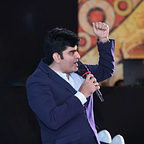Leaning Out : The Cognitive Dissonance Dilemma
“People’s love for music fueled our business aspirations,” the former CEO of one of the world’s largest music stores once declared, gazing from the second-floor balcony onto his bustling shop floor. However, years later, his global music emporium was no more. He was correct; people adore music, but they don’t relish enduring an hour-long trek in the rain, navigating through a crowded store, and waiting in line for a plastic disc.
His misjudgment lay in misinterpreting his customers’ desires. They craved music, not CDs. In the spring of 2003, iTunes, Apple’s digital music platform, emerged, offering music aficionados a way to access their beloved tunes without the hassle.
Tragically, this CEO dismissed digital music as inconsequential, refusing to engage in discussions with his leadership team about its potential introduction and the challenges it posed. Similar to Clifford Stoll’s cynical prediction about the internet’s future in 1995, which Newsweek would later discontinue its print magazine and transition entirely to the web.
Throughout history, prominent figures have also “leaned out” when confronted with technological advances. In 1903, a bank president declared the automobile a mere novelty. In 1992, Intel’s CEO dismissed personal communicators as a pipe dream. Even Microsoft’s former CEO, Steve Ballmer, ridiculed the iPhone’s potential for significant market share.
Reflecting on a personal experience in 2012, I attempted to convince a renowned fashion brand’s marketing department to embrace social media. Sadly, they resisted, fearing criticism and a loss of control. Their brand eventually filed for bankruptcy in 2019.
In the world of business, the ability to adapt and “lean in” to evolving technologies and trends is often the key to survival and success.
